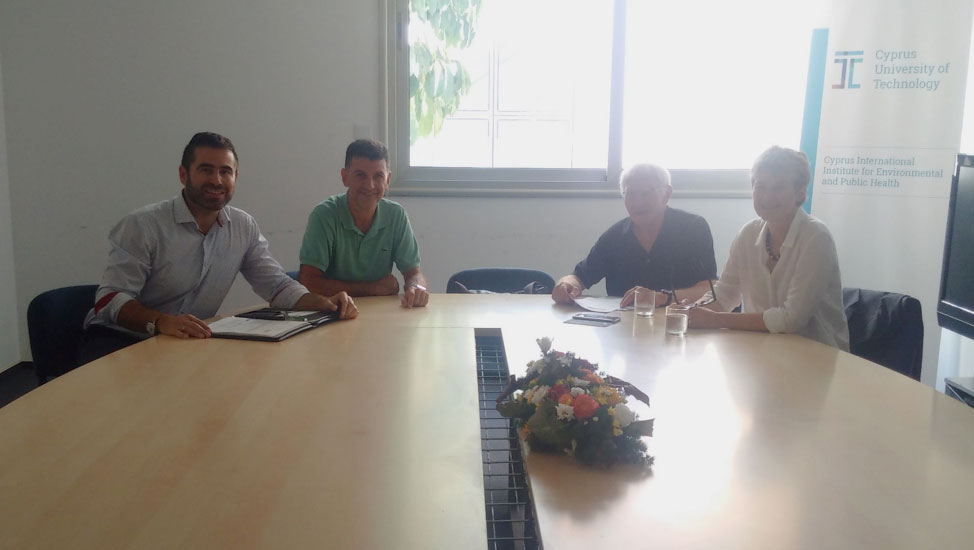The project is awarded by the Research Promotion Foundation of Cyprus and it is fully aligned with the general objectives of the CY-FR bilateral collaboration programme. It will enhance and eventually sustain collaborative research even after its completion in the field of environmental health and life sciences between prominent public research organizations of the two participating countries. A major strength of the project, also, fitting with the specific call objectives, is the focus on applied research with the collaboration between INSERM (France) and the Cyprus University of Technology (CUT).
The project is based on the hypothesis that commercial cleaning and disinfection products (halogenated disinfectants) which are composed of active ingredients may be linked with causing metabolic alterations and, eventually, may lead to insulin resistance pathophysiology and to the development of type II diabetes. These products are widely used in health care facilities by nurses making this particular population group interesting to study.
The project objectives are to:
- Determine the association between disinfectant use in occupation settings and the incidence of type II diabetes for nurses enrolled in the French CONSTANCES cohort study.
- Enhance the networking capacity of the two bilateral collaborating institutions by allowing for exchange visits by early career and senior investigators.
Specific occupational groups such as nurses are expected to be high risk groups with respect to exposures to disinfectants and disinfection by-products. This is the reason why we focus on them to study the possible association between disinfectant use and T2D. To the best of our knowledge, no studies are available that deal with the potential metabolic health effects of disinfectants and particularly for high risk occupational groups, such as nurses. The project is innovative, because the hypothesis linking disinfectant exposures to T2D for nurses has not been tested elsewhere. Also, access of French cohorts by Cypriot organizations is so far uncommon.
LIST OF
EXCHANGE VISITS
Exchange Visit 1:
Set-up and allocation of tasks for each country team, timeline and means of communication, data exchange. Limassol, Cyprus (1st month).
Exchange Visit 2:
Preliminary data collection exchange. France (month 6).
Exchange Visit 3:
Discussion of troubleshooting issues. Exchange of statistical analyses outputs and results (so far). France (month 12).
Exchange Visit 4:
Final meeting and symposium. Data interpretation and final conclusions. Presentations to the public for both countries data. Nicosia and Limassol, Cyprus (month 24).

Figure 1: Number of nurses that reported use of specific occupational chemical categories during their work shift at least once in lifetime (CONSTANCES preliminary data obtained with permission by Prof. Zins
TEAM

The bilateral team of the project is composed of the Cypriot team, i.e., that from the Cyprus International Institute for Environmental and Public Health (Dr. Makris, Ms. Andrianou and Dr. Christophi) that have previously worked in a study funded by the BBMRI-LPC consortium looking into the effect of disinfection by-products on diabetes mellitus for the general population.
The French team is composed of Profs. Goldberg and Zins who belong to the Paris Descartes University and work within the INSERM Population-based Epidemiological Cohorts Unit (PECU; director: M. Zins). Both are MDs and specialists in epidemiology and co-PIs of the Gazel and Constances cohorts. They published more than 400 peer-reviewed articles. PECU is composed of about 45 persons and hosts regularly PhD and post-doc students from different countries.

